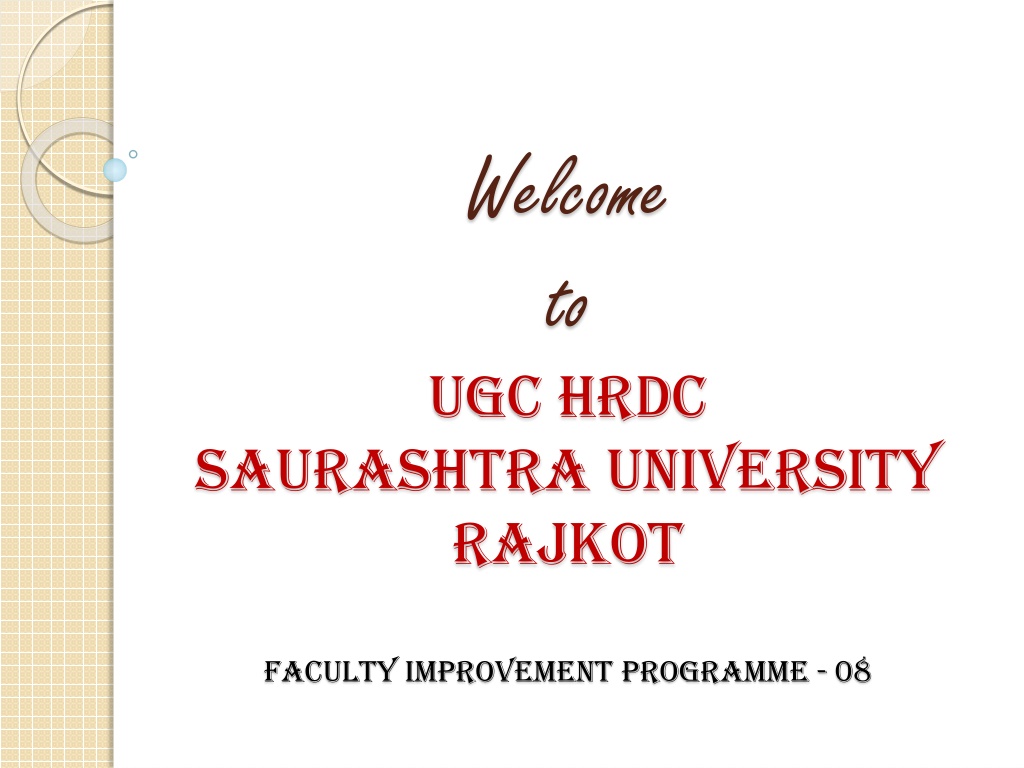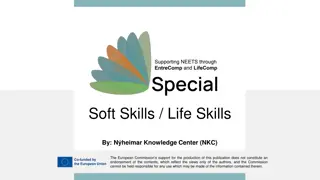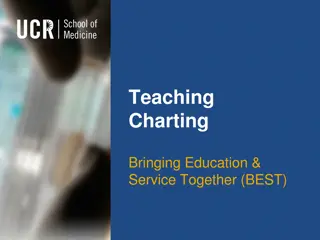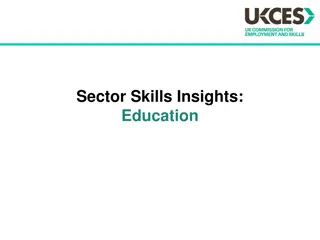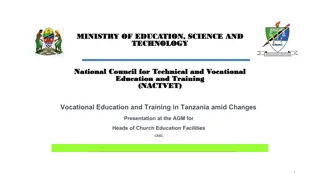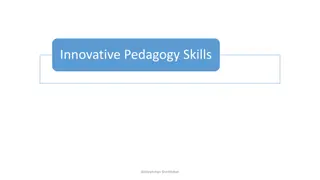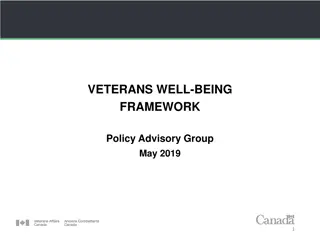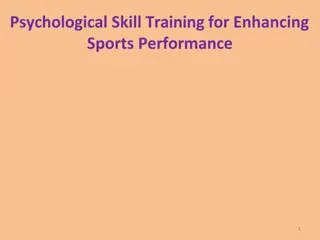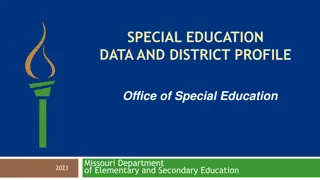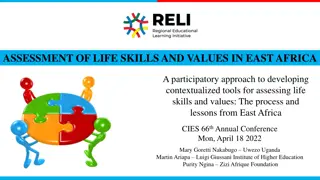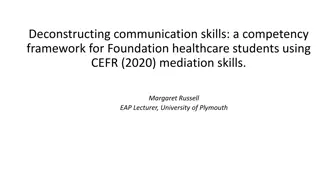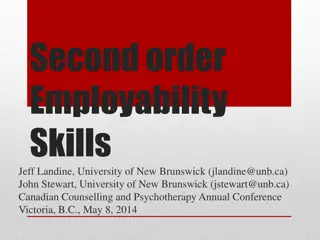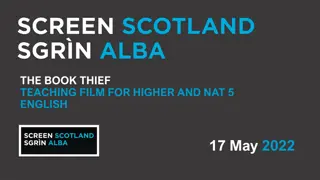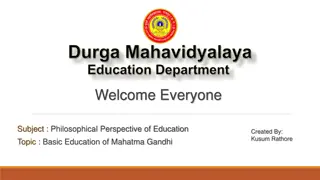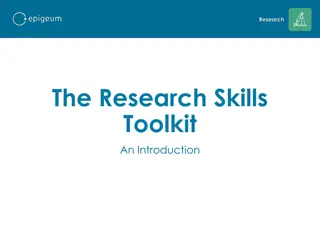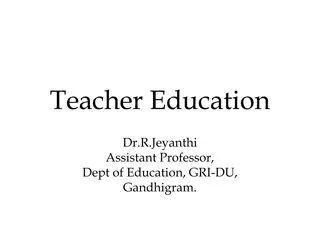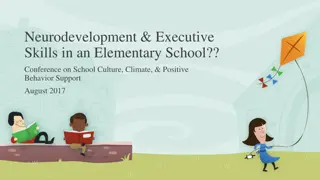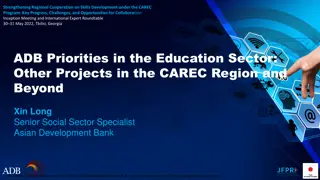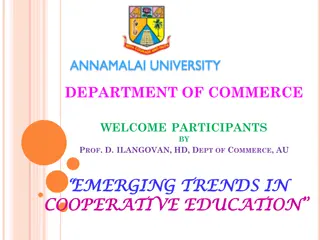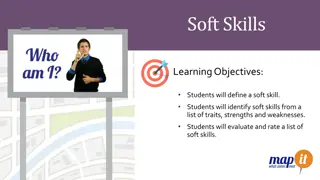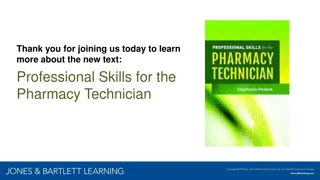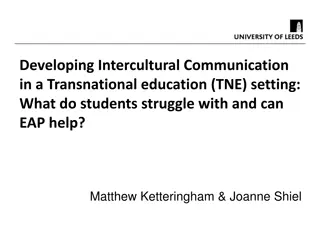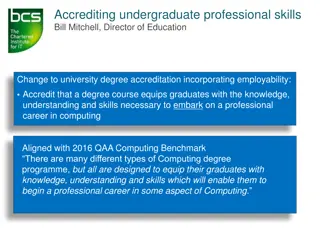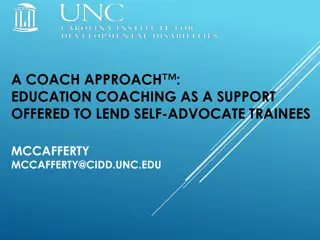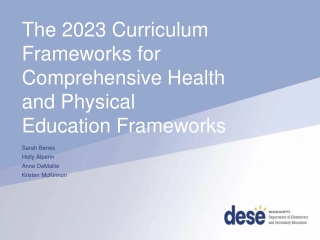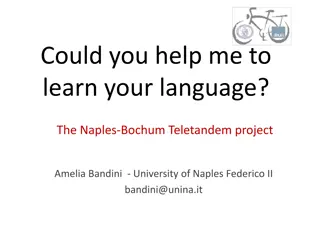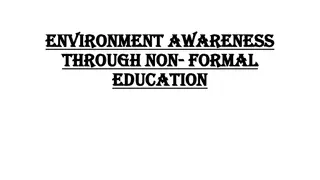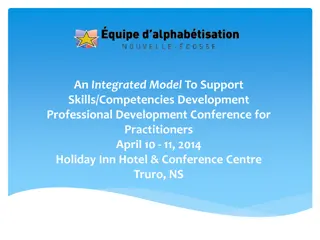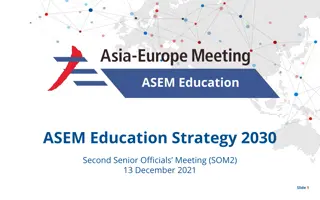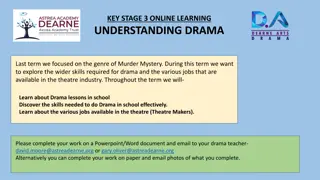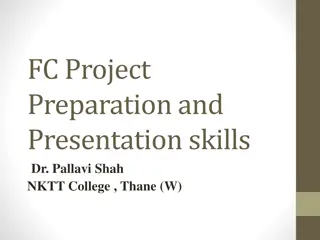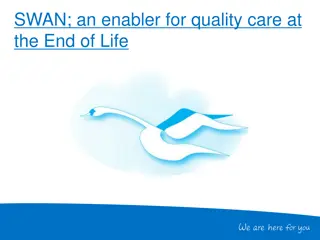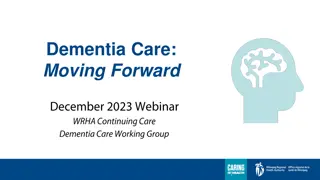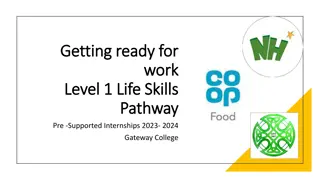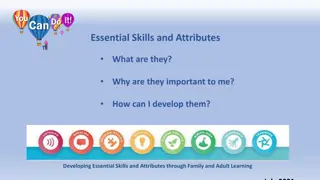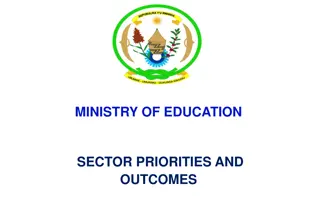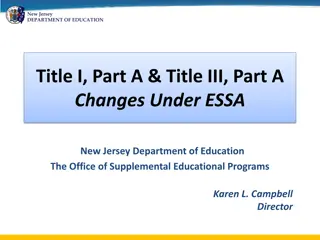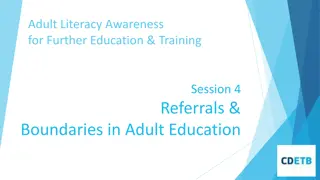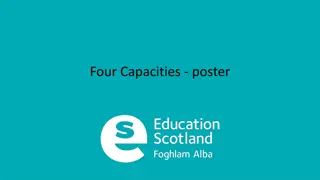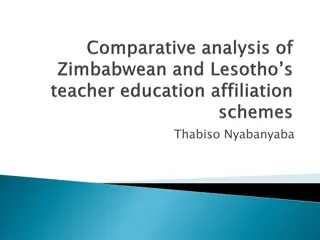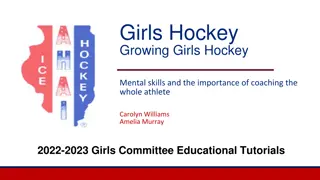Enhancing Life Skills in Education: A Comprehensive Approach
Life skills in education play a crucial role in enabling individuals to deal effectively with everyday challenges. This includes developing cognitive skills for reasoning, communication skills for agency enhancement, and functional capabilities for problem-solving and decision-making. Cooperative learning methods such as Jigsaw promote teamwork, reduce conflicts, and improve educational outcomes. Project-Based Learning involves students actively solving real-world problems to deepen their knowledge and decision-making skills.
Download Presentation

Please find below an Image/Link to download the presentation.
The content on the website is provided AS IS for your information and personal use only. It may not be sold, licensed, or shared on other websites without obtaining consent from the author. Download presentation by click this link. If you encounter any issues during the download, it is possible that the publisher has removed the file from their server.
E N D
Presentation Transcript
Welcome to UGC HRDC Saurashtra University Rajkot Faculty Improvement programme - 08
Presentation on Life Skill in Education by Group 04 Dr. JignaL. Kholiya Mr. NarendrabhaiT. Chotaliya Dr. SachinG. Mahajan Dr. MayurS. Jani
Life Skills in Education According to World Health Organisation (1997) : Thee abilities for adaptive and positive behaviour that enables individuals to deal effectively with the demands and challenges of everyday life. UNICEF (2001): Life-Skills based education is behaviour change or behaviour development approach designed to address a balance of three areas, knowledge, attitude, and skills World Education Forum, 2000: The human right to benefit from an education that will meet their basic learning needs in the best and fullest sense of the term an education that includes learning to know to do, to live together and to be.
The Pillars of Education Learning to know: Developing Reasoning It relates to cognitive life skills such as critical thinking, problem solving and decision making skills. It thus refers to both the acquisition of knowledge as well as the use of knowledge. Learning to be: Enhancing Agency It relates to communication skills, Negotiations Skills, Refusal Skills, Assertiveness skills, Interpersonal Skills, Co-operations Skills,& Empathy Skills. Learning to Do: Functioning and Capabilities It refers to central human functional capabilities of 'Life', Bodily Health, 'Bodily integrity and
Life Skills in Education Problem Solving Allows to solve problem, conflict without anger, intimidation, insubordination , aggressive force or behaviour. For e.g. In education there is a teaching methods called Cooperative Learning Method. In this method students working together in small groups to solve out the problem given by the teacher that has been outlined by teacher. One of the method of cooperative method is Jigsaw. Jigsaw teaching strategy reduces racial conflicts among school children promotes better learning improve student motivation and increasing positive educational outcomes. In this methods teachers divide students in to 5 to 6 persons jigsaw groups. Assign each students to learn one topic. Give students time to read over the topic at least twice and become familiar with it. Give students in these expert groups time to discuss the main points of their topic and to rehearse the presentation they will make their jigsaw group.Here are the examples of cooperative learning method and jigsaw3 https://www.youtube.com/watch?v=MFV2CekiUy0 https://www.youtube.com/watch?v=D6i7U_99BQY
Decision Making Project Based Learning is a dynamic classroom approach in which students actively explore real world problems and challenges and a acquire a deeper knowledge. Students have to work in groups. The teacher has given a complex problem to the student related to real life situations. To achieve the goal students have to make decision regarding the alternative choices present in the environment. In project based learning model organized an open ended diving question or challenge. It requires to learn to create something new. It also requires critical thinking, problem-solving collaboration, and communication. In historical research method researcher. https://www.youtube.com/watch?v=D6i7U_99BQY
Creative Thinking Inquiry training model was developed by Richard to teach students a process for investigating and explaining unusual phenomena. This model helps students to establish facts, build concepts and generate explanations. https://www.youtube.com/watch?v=mAYh4nWUkU0
Interpersonal relationship Education is teaching learning process. The classroom is a social system in which the teacher and the student interact as organizational members. The quality of classroom relations is dependent on the activities of both the instructor and the students. Teachers communicate during their classes. They need a good preparation in order to send correct, up to date messages.
Life Skills in Mathematics I. Problem solving skill 1. Familiarize yourself with the problem. 2. Translate to mathematical language. 3. Carry out some mathematical manipulation. 4. Check your possible answer in the original problem. 5. State the answer clearly. The First Step in Problem Solving with Algebra To familiarize yourself with the problem: 1. If the problem is written, read it carefully. Then read it again, perhaps aloud. Verbalize the problem to yourself. 2. List the information given and restate the question being asked. Select a variable or variables to represent any unknown(s) and clearly state what each variable represents. Be descriptive! For example, let t = the flight time, in hours. 3. Find additional information. Look up formulas or definitions with which you are not familiar. Geometric formulas appear on the inside back cover of this text; important words appear in the index. Consult an expert in the field or a reference librarian. 4. Create a table, using variables, in which both known and unknown information is listed. Look for possible patterns. 5. Make and label a drawing. 6. Estimate or guess an answer and check to see whether it is correct. The Second Step in Problem Solving with Algebra Translate the problem to mathematical language. The Third Step in Problem Solving with Algebra Carry out some mathematical manipulation. If learners have translated to an equation, this means to solve the equation. The Fourth Step in Problem Solving with Algebra Check you answer with the original problem. Remember to make sure your solution is reasonable and that all the conditions of the original problem are satisfied. The Fifth Step in Problem Solving with Algebra State the solution in a clear and precise manner. That is, write a complete English sentence stating the solution.
Decision Making Skill At the time problem solving we need to take decision when we have choice of the correct way out of different ways. This skill can be acquired by the practice. In the beginning stage, learner can use any way though it is wrong because it helps for decision making in future. Economic-mathematical modeling of decision can be applied only in the conditions in which the result expected by the decisional factor can be monetary quantified and accomplishes an optimization. Modeling the decision through intelligent technologies is applied in the circumstances in which the decisional factor lacks the knowledge regarding the acting ways and the reasoning about the implementation of the best decision and incorporates, through the informational model developed, the knowledge from the domain. The decision modeling through informational technologies has a larger area of coverage. Thus, informational technologies can be used for developing an informational solution based on an economic mathematical model through the implementation of this model into a programming language, and for developing an intelligent informational solution which incorporates knowledge from a specific domain of action.
Critical thinking skill Critical and creative thinking are both essential to doing math. Critical thinking skills will lead a student in the process of analysis, evaluation and synthesis in solving a mathematical problem. Thinking may be critical and creative.Creative thinking: making something new. Critical thinking: making sound judgements. These two ways of thinking are complementary and equally important. They need to work together in harmony to address perceived dilemmas, paradoxes, opportunities, challenges, or concerns (Treffinger, Isaksen, & Stead-Dorval, 2006) Learners will make judgements as they are solving problems, deciding which path to follow, and when. They will pick the best representations for their mathematical work, and their own idiosyncratic mathematical voice will come out.
Communicating ideas and information To communicate concept, axioms, definitions, theorems, ideas, logic, arguments, steps of solving a problem, processing ideas and conclusion we need the skill of expression which we call communicating ideas and information. All the teachers and learners should have such skill of communicating ideas. If a learner cannot express his/her problem, difficulties, confusion, ideas, mathematical logic, learning cannot be done. In the ancient era mathematics was taught through puzzles and problems. Then all the students were trying to solve. To solve them they must have communication skill. There were brainstorming and communications, trial and error, and ultimately they were reaching to the solution. To put any problem and to let the learners solve themselves and involvement of teacher when and where needs, was the technique to develop this skill. At present this skill is less developed because of current education system. We must look behind and adopt the methods what were used in ancient era.
Interpersonal Relationship In T.Y.B.Sc. Mathematics students are give project work in group of four to five students. Students divide their work and organize their ideas to complete the task. Teacher guides the group 2-3 times in a week. When a teacher gives assignment to work in group, it always interpersonal relation each one need help from one another. They can have some differences in their ideas, discussion, arguments and reaching to solution gives opportunity to work in a team. To work in a team and to lead the team is parts of interpersonal relation. Learners find how to setup them in the team.
Life Skills in Gujrati Story telling and Poetry recitation https://www.youtube.com/watch?v=x3KnpEJPud4
Life Skills in Library Science Problem Solving Library as a system requires problem solving skill. The system incorporates Man, Machine, Money and Mechanism. System approach imparts skill about understanding system, system analysis, system design, time and resource management Decision Making As a system deals with human being library science profession requires skill about Planning, Budgeting, Staffing, Organising, Directing, Coordinating, Time Management, Reporting, etc. all these factors strongly requires decision making Creative Thinking In library science profession knowledge organisation requires logic, creative thinking, assumption, assimilation, etc. The Universal Decimal Classification System, Dewey Decimal Classification System and Colon Classification System are the useful tools for knowledge organisation. To use and to develop such tools for knowledge organisation requires creative thinking. Inter personnel Relationship Library science profession is a service oriented one. It always deals with human being. To provide right service to right person at right time through right personal way requires to maintain inter personnel relationship. It requires to study users psychology, users behaviour, users needs and users satisfaction.
Suggested parameters to enhance life skill in education with respect to Ancient Education System The objectives and fundamentals of education system from primary to post graduate 1. may be same. There may be education facility under one roof from primary to post graduate 2. There may be equal qualification for teachers from primary to post graduate 3. There may be interdisciplinary subjects from primary to post graduate (as per level of 4. students 50% basic knowledge and 50% application of basic) There may be credit based system and with regular subjects allocation of some credit 5. for choice based vocational education With specific stream or faculty he/she may have liberty to choose subject of interest 6. from any faculty The system may be teacher oriented but choice base for students 7. Entire educational system may be based on ethics and mandatory to follow ethics 8. Issues like environment, social, political, economic and education may have common 9. ethical base
Thanks to all UGC HRDC Saurashtra University Rajkot
